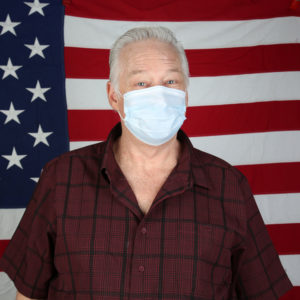Conventional wisdom held that if stricken with COVID-19, and it did not kill you, you would get sick, get better in a few weeks and move on. Conventional wisdom was wrong.
The news is teeming with stories of people who got COVID-19, cleared the virus, but are not recovering. Perhaps they did not even step foot in a hospital, yet they have remained sick for months.
These COVID Long Haulers, or LongCovid patients, can have profound fatigue, weakness, bedridden stints, a racing heart, chest pain, breath and cognitive difficulties, fever, GI and sleep problems and more. Many report minimal activity making them worse. One day they improve, the next new scary symptoms emerge, or previously resolved ones resurface.
Who could have predicted this? Who would have known the coronavirus might bring a surge of delayed recoveries or non-recoveries?
Unfortunately, I knew.
So did the up to 2.5 million Americans who experience symptoms similar to LongCovid, but for years. We have Myalgic Encephalomyelitis/Chronic Fatigue Syndrome (ME/CFS), a neurological and immunological disease. Eighty percent of cases start with a viral or bacterial infection. Doctors diagnose ME/CFS after symptoms persist for six months.
I got mononucleosis from the Epstein-Barr Virus in college; it knocked me flat. Since ME/CFS has no FDA-approved treatments and no cure, decades later I am still often homebound or bedridden, as are 25 percent of ME/CFS patients.
Others also knew a post-COVID illness was coming: Leaders at the National Institutes of Health, including Anthony Fauci.
They knew because research on post-epidemic and post-infection recovery shows many viruses leave in their wake patients who experience an onset of post-viral fatigue and/or ME/CFS-like symptoms. This has been true of SARS, MERS, West Nile, H1N1 flu, Ebola and Epstein-Barr.
Way back in March, NIH’s Dr. Walter J. Koroshetz, said: “I hope that COVID doesn’t lead to an increase in ME/CFS, but I suspect that… it’s something that we should be prepared for.”
The take away: This pandemic had the predictable potential to increase the number of longer-term sick patients, a subset of whom could be diagnosed with the permanent disability ME/CFS.
To be clear, we don’t know if LongCovid patients will be diagnosed with ME/CFS. Everyone hopes they return to health. No one wants this more than people with ME/CFS; we don’t want anyone else to suffer endlessly as we have.
Yet some LongCovid patients’ doctors are raising the prospect of ME/CFS with them. Alain Moreau of the University of Montreal said, “The question is not if (some) will develop ME/CFS — it’s how many.” Fauci acknowledged three times in one week that LongCovid is “highly suggestive of myalgic encephalomyelitis and chronic fatigue syndrome.”
The ME/CFS research NIH is currently supporting is appreciated. Yet it is minimal. NIH allocates $5 million to $15 million per year. The Institute of Medicine said this was a “paucity” of research; they called for more. If we had invested more, earlier, we might now have treatments and a cure for ME/CFS and LongCovid cases.
Additional leaders knew ahead of time what was coming down the pike: Members of Congress, and they have a plan.
Last week Sen. Ed Markey (D-Mass.) held a roundtable discussion on ME/CFS and its links to COVID.
Back in May, he and a bipartisan group of colleagues asked Senate leadership to include in the next Coronavirus Relief package — now being negotiated on Capitol Hill — an increase in research funding ($15 million per year for four years) for ME/CFS and post-coronavirus patients with ME/CFS-like symptoms, to “ensure these patients are not left behind.”
They direct NIH to prioritize new funding announcements to quickly foster diagnostics and treatments; an effort to build consensus on a case definition; and incentives for researchers to study ME/CFS.
Rep. Jamie Raskin (D-Md.) agrees with the importance of this work. His House bill, “The Understanding COVID-19 Subsets and ME/CFS Act,” calls for NIH to collect epidemiological data, fund collaborative research centers and educate medical providers.
Even NIH researchers are calling for action. Dr. Avi Nath said, “Agencies, Congress, everybody — should be really focused” on COVID-19 patients potentially developing ME/CFS. “They really need to appropriate resources to quickly get into this field, get lots of people interested in studying these patients.”
Key to any next step is an investigation of race in ME/CFS and LongCovid. To this end, NIH could support the work of Mady Hornig, a neuroimmunologist at Columbia University’s Mailman School of Public Health, as she tracks COVID patients to see who develops ME/CFS.
Congress must back these groundbreaking legislative initiatives. NIH must rapidly scale up, at warp speed, research efforts and development of treatments.
Do it for the millions disabled by ME/CFS. Do it for those newly afflicted with COVID, now at risk of getting LongCovid, and potentially ME/CFS.

